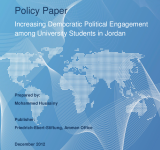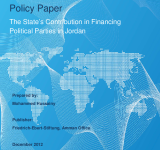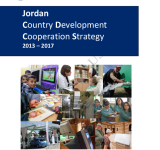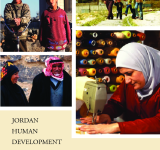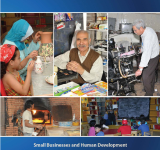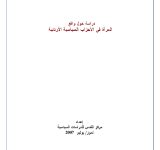The purpose of this paper is to examine the issues that are limiting the democratic perception of Jordanian university students' political engagement in university life. The paper defines this issue as being directly linked with both students' freedom and representative bodies. It offers a description of the historical and legal backgrounds associated with students' political participation in Jordanian universities;; and examines the core issues associated with students' political participation. This paper also categorizes the various problems that limit students' participation;; including intervention of security offices in student affairs;; the weakness of student clubs;; and the election mechanisms of student elections. This paper also discusses the absence of a student body that unifies various Jordanian universities;; disciplinary regulations;; university violence;; and the inability to students to express their political thoughts within the university.
democratic
This paper examines issues concerning the state's financial contribution to political parties. It argues that the weakness of parties' financial resources limits their ability to engage in political activities and elections. The purpose of this paper is thus to provide a number of options and recommendation to help decision makers form the state's system for financing political parties. It aims to provide suitable financial support for each political party;; encourage the development of political parties in Jordan;; raise the political efficiency of political parties;; develop their organizational structures;; and motivate parties to participate in political life at national and local levels. This paper analyzes the positives and negatives of four financing options and;; based on this analysis;; presents a suggested system to assist decision makers as they design the state's financing mechanism for political parties.
Defining the goal as improved prosperity;; accountability and equality for a stable;; democratic Jordan;; the strategy report highlights a long-standing partnership between Jordan and the United States. Amidst a number of challenges;; Jordan continues to play a strategic ally in the region and therefore;; the report stresses the importance of assisting Jordan in carrying out its stated commitment to broad-based political and economic reforms. The three development objectives are 1. Broad-based;; inclusive economic development accelerated;; 2. Democratic accountability strengthened;; and 3. Essential services to the public improved;; with a special development objective of gender equality and female empowerment enhanced. According to the report;; the key theme of the strategy is complementing support for Jordanian-led structural reform with grassroots activities of more visible and more directly “felt” people-level impact. The development objectives find specific areas of focus that need the USAID investments and support.
This report consists of eight chapters and aims to summarise the key concepts of human development. It introduces the Human Development Index;; provides an overview of Jordan's human development achievements;; examines the regional vulnerability context that has constrained Jordan's options in its pursuit of social and economic development;; provides a platform for the poor to express their views and perceptions in relation to their poverty status;; reviews the policies;; institutions and processes that affect the poor;; examines the government's attempts to stimulate entrepreneurialism;; promotes the application of a rights-based approach;; in which all citizen are equally empowered and have the capacity and the appropriate enabling environment that allows them to claim their entitlements according to law. Finally;; the study examines the various reform initiatives in progress and assesses the extent to which Jordan is committed to the process.
This report explores the role of Small and Medium-Enterprises (SME);; as an agent for sustainable human development in Jordan. It analyzes SMEs and their contribution to human development using fours key central pillars of human development;; namely: economic growth that is equitable and pro-poor;; social progress;; participation and empowerment through micro finance;; and environmental sustainability. The report analyses the link between SMEs and empowerment or lack thereof;; with a specific focus on the two issues of employment;; as a tool for empowerment;; and the capacity of SMEs to enhance the position of women within the workforce and home. The report findings were based on extensive research;; a survey of 1;;500 firms and focus groups discussions conducted across the governorates of Jordan. The report proposed general recommendations in terms of institutional coordination;; exports;; cluster groups;; quality standard;; government monitoring;; tax law;; local development;; youth empowerment and the increase of minimum wage.
دراسة مسحية استطلاعية حول واقع المرأة في الأحزاب السياسية الأردنية. وهذه الدراسة المسحية كانت من شقين: توزيع استبانة على عينة تضم 113 حزبية ينتمين الى 17 حزبا من أصل 35 حزباً سياسياً;; واجراء مقابلات مع عدد من الحزبيات حول واقع مشاركة المرأة في الأحزاب والمعيقات التي تواجهها. وفيما يتعلق بالجانب النظري للدراسة فإنه يستعرض المرأة في برامج الأحزاب السياسية الأردنية;; وشمل ذلك المرأة في ادبيات 18 حزباً من مختلف الاتجاهات. وقد أظهرت النتائج ضعف تمثيل المرأة في الاحزاب لعدة عوامل سياسية واجتماعية واقتصادية اضافة إلى عوامل تتعلق بالمراة ذاتها. وكما قدمت الدراسة مجموعة من التوصيات وكانت على أربعة مستويات: المجتمع الاردني;; والحكومة الأردنية;; والأحزاب الأردنية;; والمرأة نفسها.
